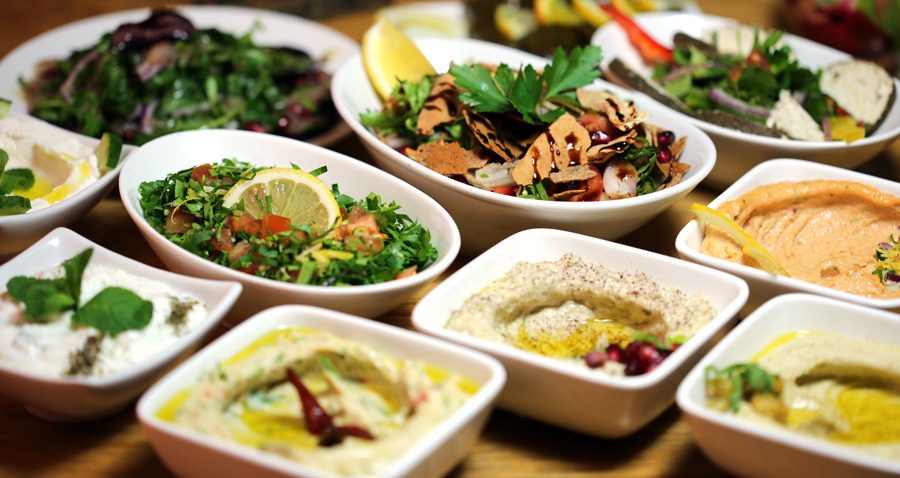
Lebanese cuisine holds a special place within the rich tapestry of Mediterranean flavors. Known for its vibrant colors, bold spices, and fresh ingredients, Lebanese food is a delightful fusion of various regional culinary influences. But does it align with the principles of the Mediterranean diet, renowned for its health benefits? Let’s delve into this culinary exploration.
Understanding the Mediterranean Diet
Before delving into the compatibility of Lebanese cuisine with the Mediterranean diet, it’s essential to grasp the fundamentals of the latter. The Mediterranean diet emphasizes whole, plant-based foods such as fruits, vegetables, whole grains, legumes, and nuts. It incorporates olive oil as the primary fat source, moderate consumption of fish and poultry, and limited intake of red meat and sweets. Additionally, it encourages regular physical activity and the enjoyment of meals with family and friends.
Key Components of Lebanese Cuisine
Lebanese cuisine boasts a diverse array of dishes, each reflecting the country’s history, geography, and cultural influences. Common ingredients include olive oil, fresh herbs like parsley and mint, grains such as bulgur and rice, and various fruits and vegetables. Spices like sumac, cumin, and cinnamon add depth and complexity to the flavors, while yogurt and labneh feature prominently in many dishes.
Fresh and Flavorful
One of the hallmarks of Lebanese cuisine is its emphasis on fresh, seasonal ingredients. From crisp salads dressed with lemon and olive oil to grilled vegetables bursting with flavor, Lebanese dishes showcase the natural bounty of the Mediterranean region. Fresh herbs like mint and parsley lend brightness to dishes, while garlic and lemon add zing without excess salt or fat.
Plant-Based Delights
Many Lebanese restaurants in Morocco offer dishes that are inherently plant-based, making them a perfect fit for the Mediterranean diet. Dips spread, and salads made from chickpeas, eggplant, and herbs offer protein, fiber, and essential nutrients. A refreshing salad of parsley, bulgur, and tomatoes is both nutritious and satisfying, showcasing the simplicity and elegance of Lebanese cuisine.
Lean Proteins and Seafood
While Lebanese cuisine includes a variety of meat dishes, it also features lean proteins and seafood, in line with the Mediterranean diet’s recommendations. Grilled chicken and fish are common choices, often marinated in a blend of herbs and spices for maximum flavor. Seafood dishes like grilled shrimp or fish stewed with tomatoes and garlic provide omega-3 fatty acids and other beneficial nutrients.
Olive Oil Liquid Gold of the Mediterranean
Olive oil is a cornerstone of both Lebanese cuisine and the Mediterranean diet, prized for its flavor and health benefits. Used for cooking, dressing salads, and drizzling over finished dishes, olive oil adds richness and depth to Lebanese recipes. Its high monounsaturated fat content contributes to heart health and may help reduce inflammation, making it a preferred choice in both cuisines.
Moderation and Balance
While Lebanese cuisine offers a wealth of nutritious options, it’s essential to approach it with moderation and balance, as with any dietary pattern. Traditional Lebanese meals often include multiple courses, allowing for a diverse array of flavors and textures. By savoring each bite mindfully and focusing on quality over quantity, it’s possible to enjoy the pleasures of Lebanese cuisine while adhering to the principles of the Mediterranean diet.
Final Thoughts
Lebanese cuisine offers a delicious and nutritious array of dishes that align well with the principles of the Mediterranean diet. With its emphasis on fresh, plant-based ingredients, lean proteins, and healthy fats, Lebanese food downtown provides a flavorful journey through the vibrant flavors of the Mediterranean region.
By incorporating Lebanese dishes into your diet in moderation and embracing the spirit of balance and enjoyment, you can experience the best of both culinary worlds while nourishing your body and soul.





